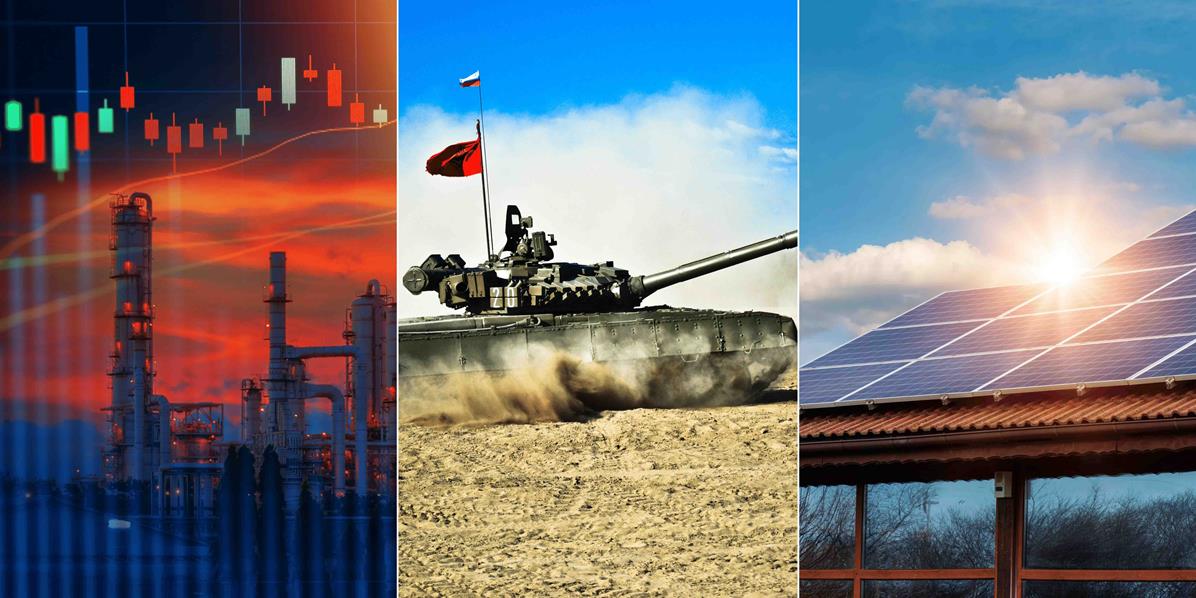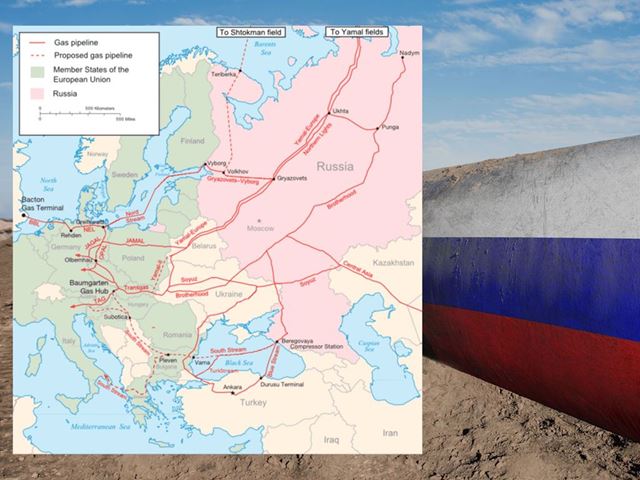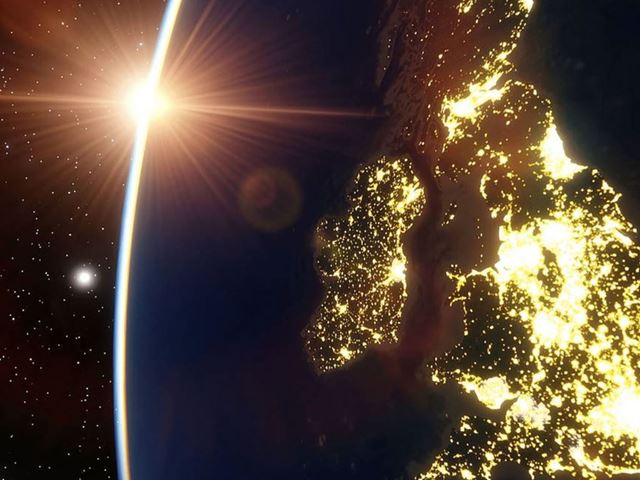How Does Russia effect the UK Energy Crisis?

- Russian aggression is causing a UK energy crisis
- Renewable energy could be the answer to prevent an energy crisis
- Renewable energy could limit Russian aggression
Britain is currently experiencing an energy crisis, unlike anything seen before. But how does Russia have anything to do with it, and can renewable energy be the answer to a solution?
The UK’s energy crisis has been fuelled, mostly, by the Russia-Ukraine conflict and Brexit. This is because Russia exports a large amount of LNG (Liquefied Natural Gas) to Europe and there is concern that should there be a major escalation in the conflict, Russia (in response to sanctions) would limit, stop or raise the price of LNG exports to Europe.
Russian gas is transported through pipelines in Poland, Ukraine, Belarus and through Nord Stream. These pipelines then reach other countries throughout Europe, such as Germany. The UK then imports energy from nations such as Norway, France and Germany. But if these European countries are paying high prices because of Russia, so is the United Kingdom.

It doesn’t stop there… Brexit has also caused major issues for UK energy. When the United Kingdom left the EU, it also left the EU Internal Energy Market, which (in short) means that they cannot buy electricity efficiently with the EU’s algorithms – raising the cost of energy, because they may not buy enough energy for the next day’s usage. The UK must buy capacity on the interconnector and then buy electricity flow for the next day, rather than buying it all-in-one and being able to accurately estimate usage for the next 24hrs.
Renewable energy is one of the best solutions to help resolve the UK energy crisis. But it should be noted that, Wind Energy has not been seen to be the best solution in this regard. Because the UK relies heavily on wind energy (compared to the rest of mainland Europe), there has been a major impact on energy production due to low wind activity from April 2021 – June 2021.
“Because of Russian activity throughout Europe; including their disinformation and ‘psyops’ campaigns with Brexit, we now find ourselves paying more energy than ever before. This is so that we can become more dependant on Russian LNG and the import of Russian gas. If we break and start buying Gazprom gas in the millions, then our ability to question Russian aggression is hindered; just like we’re seeing currently with Germany, who imports up to 75% of their gas from Russia.
Our best bet, to fight against Russia, without sending in troops and using sanctions is to heavily invest in renewable energy – predominately solar energy. The sun is always shining, but the wind isn’t always blowing – as we’ve seen recently. Solar is the ultimate weapon. Of course, another big benefit of using green energy like solar energy, is that it will also help us better the environment and lower
pollution.”

If Russian troops, which are ready for an assault, (according to the western intelligence community) go through with their plans to attack Ukraine, we will be looking at misery for millions of civilians that live in Ukraine, especially East and South-East Ukraine. Not only will the conflict bring bloodshed and a major international incident, but it will also greatly affect the energy supply in Europe as Russia is almost certain to cut off gas and oil supplies to the EU, in light of definite sanctions that will be brought on them.
Such an event, would inevitably rise energy prices further in the UK.
From what Energy Point understands, is that the best solution for the UK’s energy crisis and to combat Russian security threats, is to invest in renewable energy; and we would advise in investing in solar energy.
Anyone can get solar panels installed on their home, it doesn’t just have to be the government to invest in solar energy.
A UK Government spokesperson said that:
“Making energy saving improvements to your property could increase its value by 14% on average – and up to 38% in some parts of England. For an average home in the country, improving its EPC from band G to E, or from band D to B, could mean adding more than £16,000 to the sale price of the property.”
British Isles energy usage as seen from space
Energy Point reached out to one of the leading UK solar panel installer companies ‘Solar Fast’, who said:
“Solar energy has been proven, time and time again, to save consumers on their energy bills. You can actually beat inflation with solar panels, because the energy you produce is completely free and you get to charge batteries overnight from the grid, with an ‘agile-tariff’, which means you pay just ¼ of what you usually would for electricity.”
Unfortunately, energy prices are estimated to rise until 2023. The British government has acknowledged the crisis, but has failed to put in effective measures to protect energy consumers from serious price rises, citing that energy suppliers need to keep profits high to invest into green energy.
Everyone uses electricity and energy on daily basis. If you’re a consumer, then it’s really important that you put measures in place to protect yourself from the increase and rise of energy prices.
Some simple ways of saving money in the crisis are to:
• Turn off lights, when not in use
• Use less hot water, where possible
• Wear a jumper or dressing gown when cold in the house
• Get a smart meter
• Go outside more often
• Invest in energy-saving improvements (insulation, energy efficient boiler, solar panels, etc.)
Installing a new boiler can save you up to £500 per year on energy bills according to SwitchMyBoiler.com and Gas Fast Group.
It’s clear to see that one of the only ways to prevent a crisis of this level, seen in the UK, from happening again in the future, is to put a newly founded effort and focus into the investment of renewable energy; wind and solar farms.
On the topic of security measures, it would not be futile to suggest that NATO develops a fund to secure the future of renewable energy in Europe, to protect against Russian aggression. Research shows that Polish wind and German solar electricity combined, produced 10 times more energy than their neighbour, Latvia, consumed annually in 2015.
This would be critical hit to the Kremlin, as 36% of the Russian budget is produced by fossil fuel export revenue (GBP £62bn) (2017).
According to ‘Jonathan Morgenstein‘ (GTM & former US Marine), setting up a fund to support renewable energy, would be beneficial:
“Establishing an ‘Allied Energy Defense Fund’ investing in clean energy in Europe, would accelerate our allies’ drive for energy self-sufficiency, and drain Russia’s financial resources, undercutting its ability to wreak havoc beyond its borders.”
Renewable energy does so much more than just better the environment, it also has huge potential to keep us safe from conflict and a future energy crisis.Download Media





